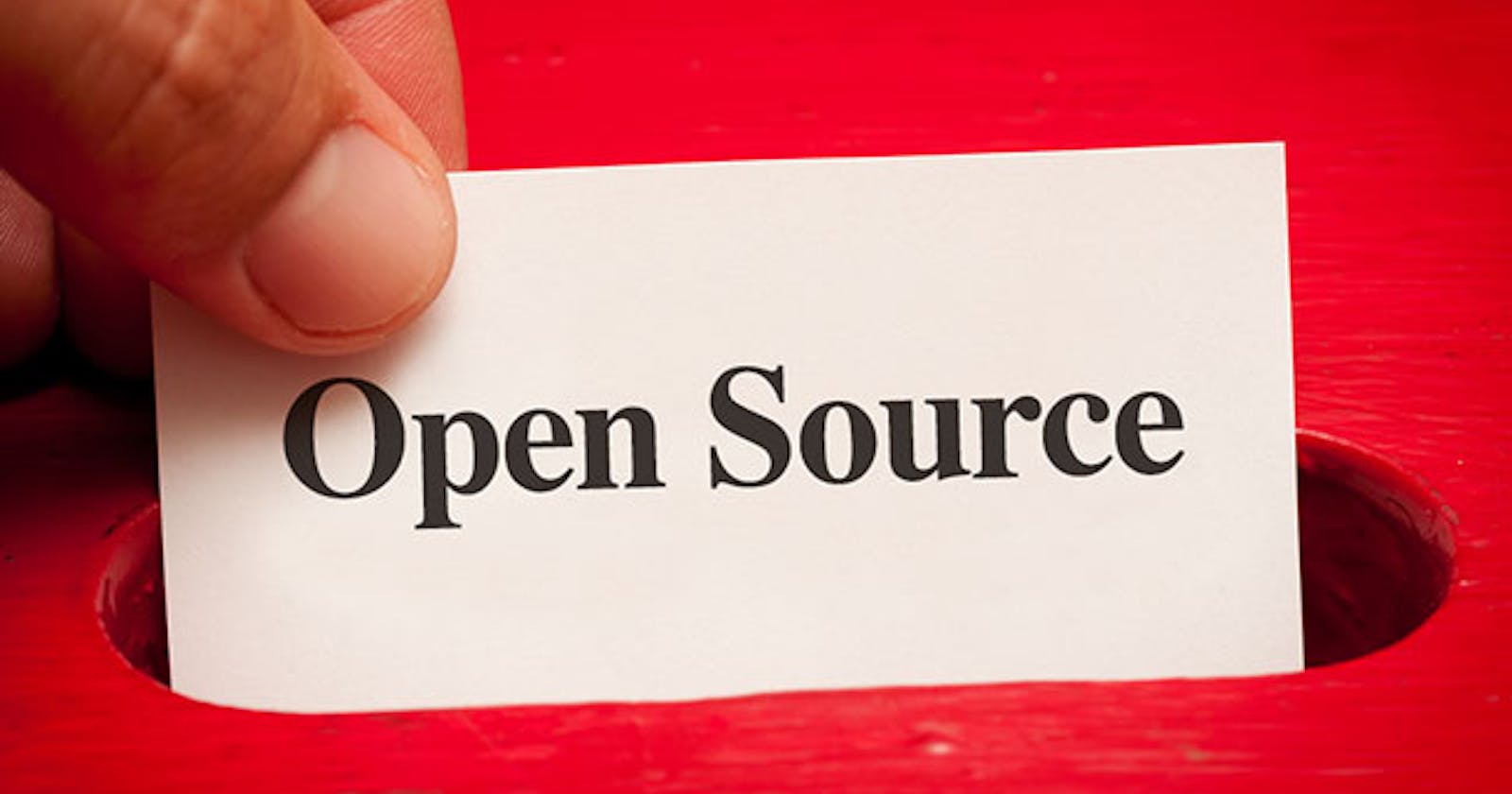PermalinkWhat is open source software?
Open source software refers to software whose source code is made available for usage, modification, and enhancement in public i.e. it is available for open collaboration.
PermalinkHow is open source software different from closed source software?
As the name suggests closed source software or proprietary software refers to software whose source code is not available publicly and it does now give you the authority to modify or inspect the code.
PermalinkWhat does contribution to open source actually mean?
A contribution to open source software can be anything from fixing a bug to adding a new feature or even writing documentation for the project. Though there is a different weightage for each contribution, so if you are fixing an issue then it would have more weightage than writing the documentation but this does not mean that one is less than the other, for a newbie to start off with a contribution, writing the documentation would also be a great step.
PermalinkWhy must one contribute to open source software?
Community: Contributing to open source software allows you to be a part of communities where you can find like-minded developers who are giving in their whole potential to the software they are contributing in. It can help you to grow your network, meet developers and like-minded people from around the world, collaborate on a project, share your thoughts, learn new things, and help each other.
Stability: An open source software is more stable than any other type because the code is available in public anyone from around the world can have a look at it and raise issues in case of any bug or can spot errors, suggest new features to add in which might have been missed by the project owner.
Learning: Contributing to open source helps you to learn new skills be it technical or general. Students contributing can get mentored by the project mentors, they can learn new tech stacks and thus get skilled in how to develop good software and what practices are involved in the making.
PermalinkHow to contribute to open source software as a beginner?
The most asked question I am a newbie how can I contribute to open source? Here is the answer:
First of all to contribute to open source, learn a language be it Python, Java, Ruby, PHP, JavaScript, etc. Get a hang of it learn how it works how can you build something out of it.
Once you've got a hang of a language or tech stack you want to contribute to, learn how to use Git and GitHub efficiently as these tools would be used extensively while contributing to any project. Resources you can use to learn Git and GitHub
Complete Git and GitHub Tutorial
Getting started with Git, VSCode, and Hosting
Complete Guide to Open Source - How to ContributeNext, have a look at different open source projects and understand how people document their projects. Read the GitHub documentation for creating a repo, contributing to projects, README file, code of conduct etc.
Once you're done with the previous steps, you're good to go to start creating your own open source project, this will give you an experience of licensing projects, when you will document your project by yourself it will make you understand what are good documentation practices, it will teach you how to create PRs, merge branches and what not. This step would help you in gaining some experience and handling projects before you start contributing to open-source projects.
Next is contributing to open source projects, now is the time you need to find projects you can contribute to. Here are a few resources which include 75+ open source programs one can contribute to:
50+ open source programs
25+ Paid Open Source Programs
A rewarding method to learn, contribute, and develop competence in just about every skill you can think of is through participation in communities and open source projects. I guess that's it! Please feel free to leave any additional questions in the comments section below, and I'll try my best to respond if they weren't addressed in the blog article above.
Thank you for reading! :)
Have feedback? Connect with me on LinkedIn
